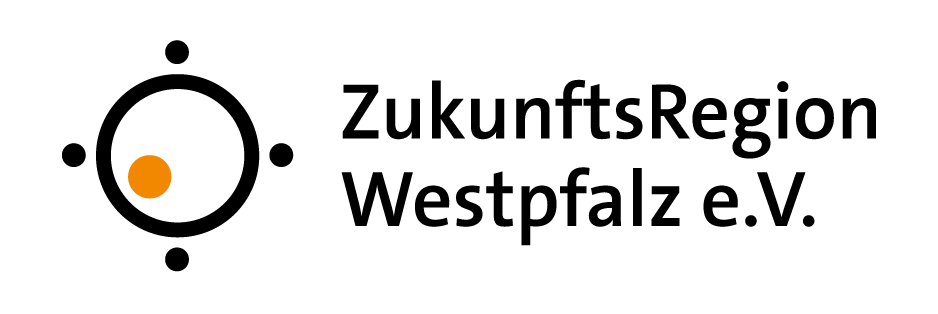The visit to Ramstein Air Base (RAB) as the final event of the Leadership Connect Days was the perfect conclusion to a program that brought together and connected people from a wide range of different sectors. The program lived up to its name, as "Leading" (i.e. leadership issues) and "Connecting" were the focus throughout the eight meetings, which have been held regularly since February 2023. And who would have initially thought they would one day sit in the cockpit of a U.S. Air Force C-130J Super Hercules aircraft as part of this program?
Invited were the responsible managers of the different companies, institutions and authorities, where the American executives were invited to the months before. The participants were picked up by bus at the Visitor's Control Center and taken to the headquarters of the United States Air Forces in Europe - United Forces Africa (USAFE/AFAFRICA). A short briefing on the RAB and USAFE was given by Sergeant Major Stephanie Cates and Headquarters USAFE-AFAFRICA Chief of Staff Robert Firman. To recap: The organization and structure of the Air Base is almost as complex as flying an aircraft itself.
Colonel Firman reports on his early days at Ramstein, which immediately began with an exceptional situation. At the end of August 2021, around 35,000 (instead of the expected 3,000 - 4,000) refugees from Afghanistan rescued by the US military gradually arrived at the RAB and were temporarily accommodated there on their way to the USA. Not an easy task, but one that was jointly mastered in cooperation with the German government and, above all, the actors in the surrounding area. Given the pressure the Air Force is under, care is taken to ensure a good work-life balance. Firman confirms that the Ramstein site is ideally suited for this. The proximity to the Rhine, the Moselle and the possibility to make trips to France within a few hours is highly appreciated by the US citizens.
The biggest challenge at the RAB is probably the constant turnover of personnel and reorganization through transfers. The fact that the RAB is the largest military base outside the U.S. (and therefore the largest in terms of personnel) does not make these challenges any easier. The average length of stay for an Air Force employee is about 19 months. A time in which you may have just settled in personally, found your regular supermarket and laundromat, only to start all over again somewhere else in the world. Fortunately, there is the Kaiserslautern Military Community (KMC), a very open-minded community that warmly welcomes newcomers.
The participants were then invited to a bus tour with Michael Gannon, 86th Airlift Wing Host Nation Advisor. The RAB offers everything you need: Housing developments with houses assigned by rank and family status, nurseries, schools, sports facilities, churches and doctors' offices. 31 different nationalities work at the RAB, with Americans, Germans, French and British being the most represented. There used to be two air bases (Ramstein and Landstuhl), which were merged in 1957.
The highlight of the visit was probably that we took the bus across the runway and were allowed to see the inside of one of the transport aircrafts. It's hard to imagine which personalities landed here for a visit or stopped over for refueling: Barack Obama, Angela Merkel, the Spanish king and many more. 70,000 aircraft movements a year, 30,000 passengers a month - a proud record.
The meeting, and with it the Leadership Connect program, ended at the Officer's Club, where a typical American lunch was prepared for the participants. This was followed by a final roundtable discussion, which also included Major General Derek C. France, Commander of the 3rd Air Force at Ramstein Air Base. The discussion centered on the topic of complexity, which arguably abounds in the Air Base organization. How do you manage complexity, especially with the constant turnover of personnel? Primarily, standardized training is provided to help transitioning personnel from one site to the next. In addition, the constant change also has a good thing: It prevents "ugly wallpaper syndrome," meaning that new employees recognize "bad" conditions more quickly than employees who have been in the position for years. The new look accelerates improvements.
The Air Force is also desperately looking for skilled workers. What benefits does it offer its employees to retain them in the long term? This is where one of USAFE's four core values* comes into play: PEOPLE. USAFE places special emphasis on making sure soldiers and their families feel comfortable at their stationing location. "You recruit one military member, but you take care of the whole family."
Both the USAFE and the German participants responded positively to the program and expressed their intention to repeat the Connect Days next year.
What core message can be drawn from all the meetings that took place? In the end, it doesn't matter in which industry you work in. It's always about people and appreciating them and their work.
We would like to sincerely thank all participants of USAFE (US Air Force in Europe) for their hospitality during our visit as well as all host companies and institutions that were part of Leadership Connect Germany 2023!
*People, partners, posture, readiness



